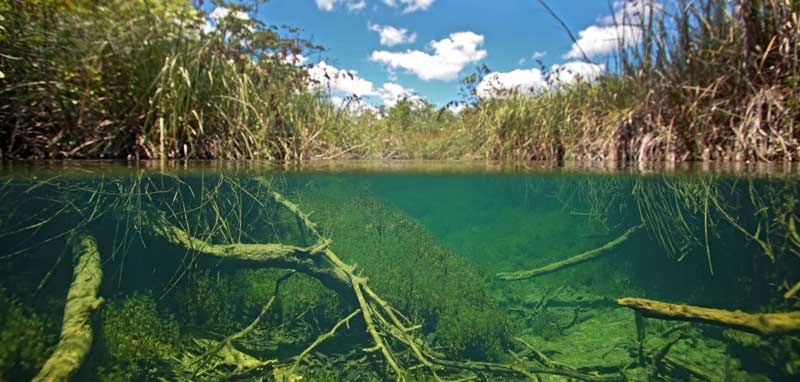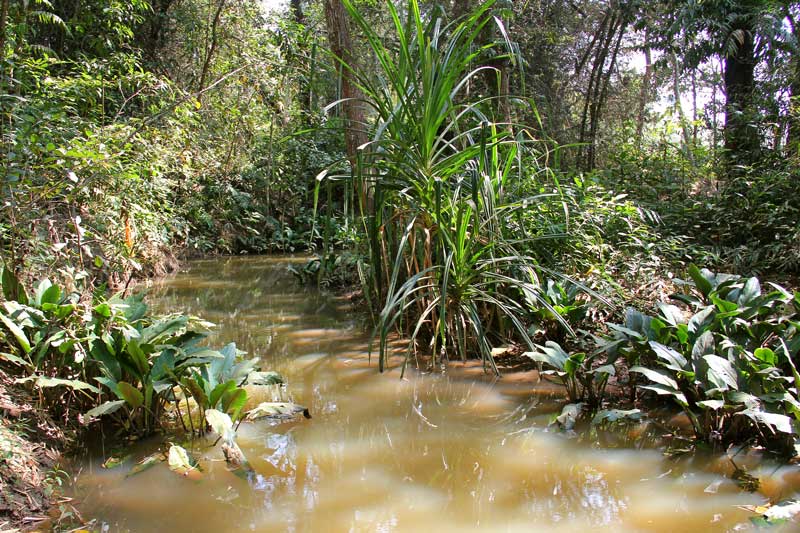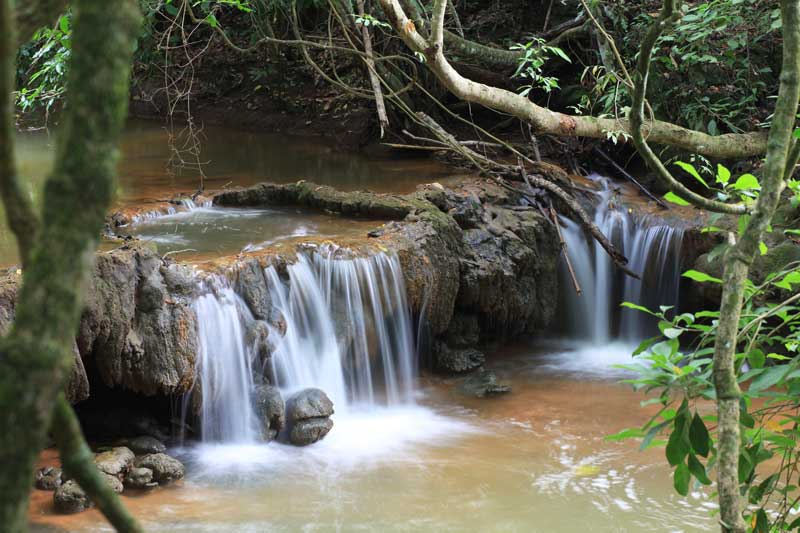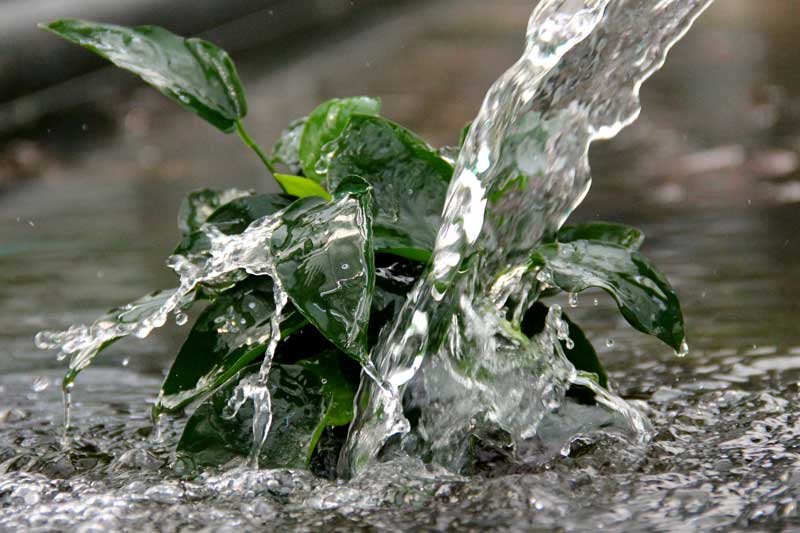Water

Water is the most important element for aquatic plants, fish and many invertebrates.
Over the course of evolution, they have perfectly adapted to the conditions in their wet habitats. Through their skin and their gills, aquatic animals are in direct contact with the wet element that surrounds them with their skin and their gills, taking up vital minerals and get rid of waste.
Plants do the same with their leaves.

The quality and composition of the water have an enormous effect on the health and well-being of the organisms living therein. A closer look at the biotopes of ornamental fish, aquatic invertebrates and plants reveals that they are by no means uniform; every landscape has one or several typical types of natural waters.
Not all water is the same
In most tropic and subtropic regions from where our aquarium fish and plants originate, the water is usually low in minerals (soft) and rich in humins, containing a high level of carbon dioxide and no pollutants whatsoever.
Dead animal or plant matter is quickly decomposed by fungi and other microorganisms. The minerals, trace elements, and vitamins produced during this process nourish other organisms.
In spots with nutrient-rich seepages, you can find lush plant populations.

No natural habitats of our aquarium animals are without humins.
Water conditioning
In our aquaria we ought to mimic the natural habitat of the animals and plants we keep as closely as possible. Appropriate water parameters are not only the basis for healthy, colorful animals and plants, they also enable us to have an unhindered look into this impressive aquatic community.
Aquaria that are biologically stable are quite close to the demands of a species appropriate, animal-friendly habitat.

Water change
Most of our aquarium animals originate from running waters or lakes. In nature, a constant water change takes place. New water is added by rain, sources, and tributaries all the time.

An aquarium, on the other hand, is a closed system. Through food, nutrients are added on a daily basis. The animals contribute to the rise in concentration of organic and inorganic pollutants through their metabolic processes. Algae feeds off this excessive waste. Even the most efficient filter is powerless against some of this waste.
Growth-inhibiting pollutants may accumulate, bringing plant growth to a halt, despite the manual addition of fertilizer on a regular basis.
In an aquarium, new water is only added to the system through a partial water change. This regular refreshment is one of the keys to a well-functioning system.

Your fish, shrimp, and other fauna will stay healthy while pest algae won't stand a chance.
For this reason, we recommend that you siphon off 20-50% of the aquarium water and then replace the same amount of fresh water at roughly the same temperature.
If necessary, treat your fresh water with the proper conditioners before you add it to your tank.
_____________
Continue reading about: Nutrients for Plants
